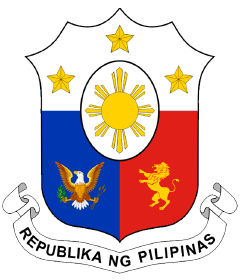All services are by appointment. Please book your appointment at appointment.vancouverpcg.org.
Bringing Pets to the Philippines
Effective 01 June 2018, the Bureau of Animal Industry of the Philippines will be requiring all pet cats and dogs to be provided a radio-frequency identification (RFID) /microchip as mandatory requirement for entry into the Philippines. Dogs and cats imported without the required identification and requirements will be declined entry and returned to its origin. All costs incurred will be shouldered by the importer.
In addition, all pet health certificates should be issued ten (10) days before entry to the Philippines, instead of the previously allowed 30 days.
Requirements
- Import permit issued by the Philippines’ Bureau of Animal Industry (BAI)
- Canadian Health Certificate issued by the Canadian Food Inspection Agency (CFIA) or CFIA-accredited veterinarian; and
- Mandatory identification of pet dog or cat with ISO compliant microchip/ RFID (radio-frequency identification).
Please note that the above requirements must be presented at the Philippine airport upon arrival of the pet. Failure to present the requirements may result in pet/s being quarantined upon arrival.
Procedures
To obtain an import permit from the Philippines’ Bureau of Animal Industry (BAI):
- BAI – Pet Animals Importation Importer Registration…click here
- Guide to obtain a Sanitary and Phytosanitary (SPS) clearance…click here
- For the updated Vaccination Records, the following will be needed:
DOGS: rabies vaccination and vaccination against distemper, leptospirosis, parvovirus, adenovirus type 2
CATS: rabies vaccination and vaccination against herpes, calicivirus, panleukopenia and feline leukemia
To obtain health certificate from CFIA or CFIA-accredited veterinarian
- Secure a health certificate for each pet from a Canadian Food Inspection Agency (CFIA) of CFIA-accredited veterinarian. (Please refer to http://www.inspection.gc.ca/animals/terrestrial-animals/exports/pets/canadianinternational-health-certificate/eng/1321285405995/1321285496577).
- The health certificate should be dated within 10 days before the date of arrival in the Philippines. The health certificate should certify that the animal is free from, and has not been recently exposed to, any dangerous or communicable disease, and that it has been given anti-rabies and other required inoculations.
Date modified: January 10th, 2024
Announcements
- Jul 25, 2024
ASEAN Summer Festival 2024
- Jul 25, 2024
ADVISORY NO. 20-2024: Holiday Advisory – August 2024
- Jul 17, 2024
Vancouver PCG joins in the celebration of the National Disability Rights Week – July 17 to 23, 2024
- Jul 16, 2024
ADVISORY NO. 19-2024: List of Applicants Approved by the RERB
- Jul 12, 2024
24 July 2024 – Heritage Talks – Itneg: Textiles, Design, and Meaning
- Jul 12, 2024
23 July 2024 – Apolinario Mabini: Conscience of the First Republic
- Jul 2, 2024
Notice of Resident Election Registration Board (RERB) Hearing – 15 July 2025
- Jun 25, 2024
“Bon Voyage” the Manila Symphony Junior Orchestra’s Send-Off Concert
